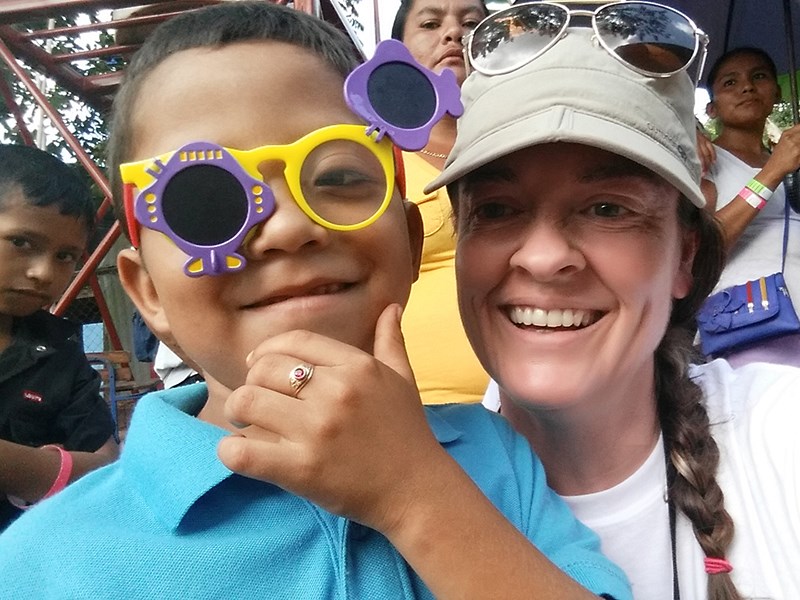Nicaragua did not pose the dangers that Powell River General Hospital emergency nurse Jennifer Robison expected, but it still was not the type of destination she was accustomed to in her world travels.
Robison joined a medical team from the Ascenta Foundation earlier this year for an arduous trip to the remote village of Riscos de Oro to bring first-world medical care deep into the South American country’s interior.
“We were told we had military support 24/7,” said Robison. “I was under the impression it was dangerous before we left.”
Ascenta Foundation is a health and education outreach charity headquartered in Vancouver. It partners with Canadian mining companies that offer financial and logistical support for the campaigns.
Since 2007, Ascenta has brought medical, dental, optimetric and surgical services to isolated regions such as Nicaragua, which has the second highest poverty rate in the western hemisphere.
“It’s not just a group you can join,” said Robison. “You need to be screened to make sure you have the skill and the personality to fit in with the team.”
Robison is a full-time nurse in the emergency room at Powell River General Hospital (PRGH). She moved to Powell River almost a year ago from Vancouver, where she worked in the emergency department at St. Paul’s Hospital for a number of years.
“I decided I just needed to get out of the city. I wanted to do rural work so I applied in many places; many more remote places than here, but [PRGH] called me first,” she said. “I thought it would be a great lifestyle and great for my career, so I moved up with my kayak, my boxes, my dog and my cat.”
Less than a year later she was with a team of 25 volunteer medical practitioners in Nicaragua for 10 days. The travel took longer than the time the team was actually on location and able to attend to the needs of the patients.
“We saw 2,275 patients in four and a half clinic days, a record for Ascenta, and worked 12- to 14-hour days,” said Robison.
To get to its final destination the team took two days from Managua to where its gated and guarded base camp was located in the town of Rosita on the north Caribbean coast. The medical clinic was another 45-minute drive under heavy military support.
“The days are very long, working in extreme heat, stifling humidity and intermittent torrential rains,” said Laura McAlear, Ascenta Foundation director and member of the medical campaigns committee. “Volunteers face hundreds of patients a day, it is by no means an easy task and it requires a great deal of physical and emotional endurance.”
According to Robison, emergency room nurses are highly sought after by organizations such as Ascenta because they deal with many medical challenges on many levels of care every day.
Robison had travelled in many developing countries. She said she expected the poverty, malnutrition and poor water, but had never experienced seeing other countries from a medical perspective.
“There is an element of risk,” said MacAlear. “Nicaragua and many countries in South and Central America experience more cases of mosquito-born illnesses than we do in Canada. Illnesses such as malaria, dengue fever, chikungunya and zika.”
Robison is hesitant about going back on a medical program, but would go if asked. She said it is not just medical care needed and people also need information about building infrastructure and health practices.
“Not only do they need the medical aspect,” said Robison, “but they also need education and teaching.”



